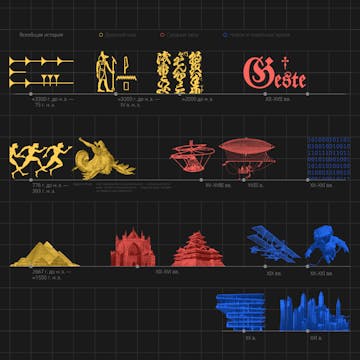
Специализация «Всеобщая история» включает материал всемирной истории от зарождения первых цивилизаций на Древнем Востоке и в Средиземноморье до настоящего времени. Специализация подготовлена на современном уровне знаний специалистами Санкт-Петербургского государственного университета.
Целью данного онлайн-курса является создание эффективной системы онлайн обучения всеобщей истории, с помощью которой у обучающихся должна быть сформирована современная ёмкая картина развития мировой истории от возникновения цивилизации до настоящего времени.
Важнейшие принципы, определяющие содержание онлайн-курса:
1. Сформировать представление о...
Read more
Good to know
Save this course
Reviews summary
Ancient world history overview
Activities
Career center
Historian
Anthropologist
Archaeologist
Museum curator
Archivist
Teacher
Journalist
Lawyer
Politician
Economist
Business Analyst
Software Engineer
Data Scientist
Project Manager
Graphic designer
Reading list
Share
Similar courses
OpenCourser helps millions of learners each year. People visit us to learn workspace skills, ace their exams, and nurture their curiosity.
Our extensive catalog contains over 50,000 courses and twice as many books. Browse by search, by topic, or even by career interests. We'll match you to the right resources quickly.
Find this site helpful? Tell a friend about us.
We're supported by our community of learners. When you purchase or subscribe to courses and programs or purchase books, we may earn a commission from our partners.
Your purchases help us maintain our catalog and keep our servers humming without ads.
Thank you for supporting OpenCourser.


